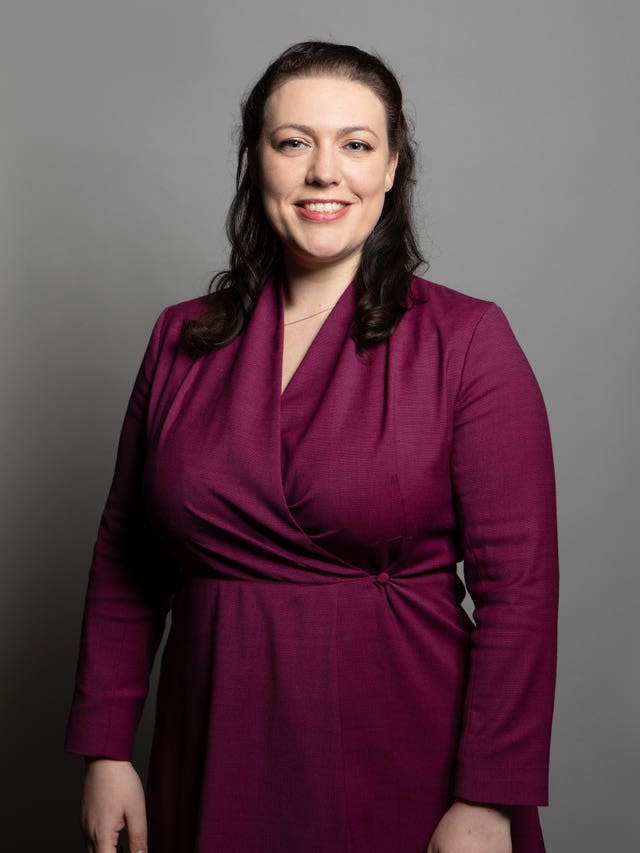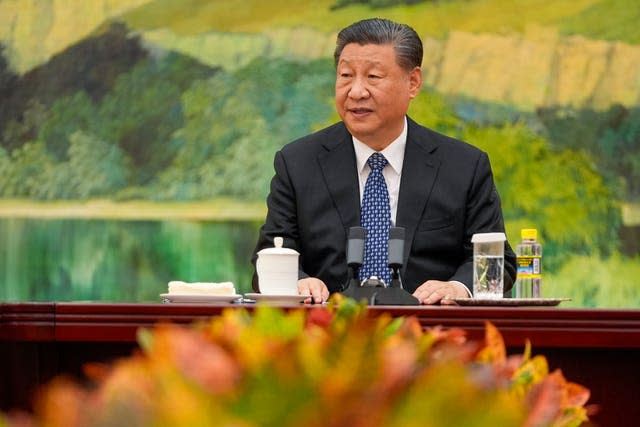Former UN commander: UK troops should go to Bosnia amid destabilisation risks
British troops should be sent to Bosnia amid risks of destabilisation in the Balkans, a former United Nations commander has argued.
Independent MP Bob Stewart told the Commons a British battalion would be the “best battalion” to send to the south-eastern region of Europe for peacemaking.
Chairwoman of the Foreign Affairs Committee Alicia Kearns has warned the Balkans could become the site of a “third global major conflict”, alongside Ukraine and Gaza, if preventative action is not taken.
During a debate on security in the region, led by Ms Kearns, she said: “We should consider the construction of a new security alliance between the US, UK and other willing Nato member states with Kosovo, because this would help allay the immediate security concerns we see.”
Earlier in her speech, Ms Kearns said: “As a minimum the UK should send a Nato peacekeeping force to the strategic Brcko district.”
Intervening, Mr Stewart (Beckenham), a former United Nations commander in Bosnia, said: “A British battalion positioned in Bosnia would give a very, very strong signal. And, frankly, a British battalion is probably the best battalion to send into such a peacekeeping situation.”
Ms Kearns said: “We saw when British troops went into Kosovo recently, last September, that there was a resurgence of the actual delivery of the mandate.
“(Mr Stewart) is absolutely right that it is British troops who will make a fundamental difference, and the fact the Dayton Agreement gives us explicit permission to create a new security force means that we should be actively debating this.”

Later in the debate, the former Conservative said the UK had positively contributed to the region in the past and should continue to do so amid rising tension and Russian influence.
He said: “We’ve done so at many levels politically, socially, economically, and quite a lot of economic work has gone on in Bosnia and, of course, militarily. I really believe our efforts will be worth it.
“We have saved many lives. Nothing is more important for us in our lives than to save someone’s life.
“And we’ve got to continue to do that … to do all we can to help the Muslim, Serb and Croat people of Bosnia – the vast majority of them, all they want is a decent life, a life that we are lucky enough to have.”
Foreign Office minister David Rutley said: “At the moment we have no plans to contribute to U4 (a web-based anti-corruption resource centre) or to rejoin at this time, but we recognise that it’s vital for Bosnia and Herzegovina security, and we work hard to support it.
“Nato supports this force under the Berlin Plus arrangements, and the UK continues to be a strong supporter of Bosnia and Herzegovina’s armed forces.”
He added that the Government “constantly” keeps its approach to sanctions under review, and it will consider targeting those who “seek to undermine the situation”.
Intervening, Conservative former minister Sir Alec Shelbrooke said: “It’s all very well saying that we’ll work through the diplomatic areas that work through sanctions, but what I’m really interested in is saving lives.”
He added: “This debate has highlighted that normal diplomatic rules are not going to be enough; we need a big stick.”
Prior to the debate, Ms Kearns told the PA news agency: “The Balkans matters and if we ignore it, we will end up with a fire on our doorstep.”
She added: “It matters not only for European security, because it is essentially our extended backyard and if there is crisis in the Balkans we will feel it here, it will impact on all of us and we can’t afford a third global major conflict, and that is exactly what it would be.”

Ms Kearns pointed to Chinese President Xi Jinping’s visit to Serbia in recent days among the developments which suggest tensions around the region could rise.
A new pro-Russian government has come to power in Serbia, which some fear could lead to clashes with the West.
Discussions at the UN about officially marking the 1995 Srebrenica massacre in Bosnia and Herzegovina have also recently proved a point of contention, with Russia and Serbia seeking to oppose a resolution on the matter.
Meanwhile, Kosovo, which declared independence from Serbia in 2008, is in talks to join the Council of Europe, signalling a closer relationship with Western countries.
Ms Kearns suggested Russia intends to sow chaos in the region, telling PA: “It is all about creating as many theatres of conflict as they can. I have given many speeches where I have talked about the fact that for Russia, if Ukraine wouldn’t go well, I would destabilise the Balkans.”
While she acknowledged that the British Government was engaged in ongoing political efforts in Ukraine and Israel, among other places, she warned of the need to take preventative steps in the Balkans too.
“Foreign policy comes at you fast, but the problem is too often foreign secretaries think that foreign policy is something you just respond to,” she said.
“It is not, we have the ability to shape it and we have the ability to mitigate the worst excesses. We have to actively choose to do so.”

 Yahoo News
Yahoo News 
